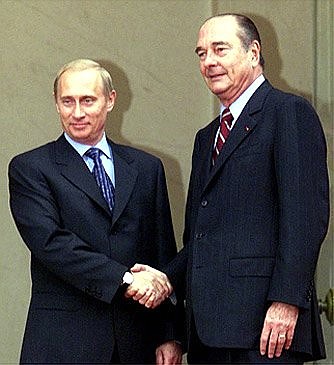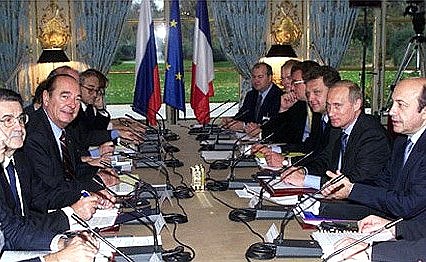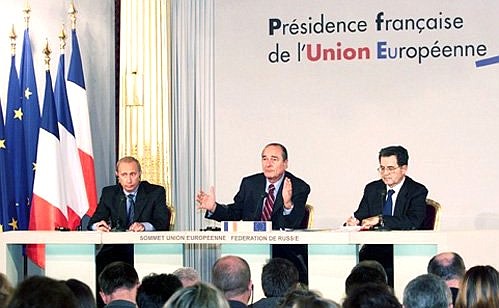The meeting discussed a wide range of issues, including energy cooperation, security and stability in Europe, the United States’ plans to withdraw from the Anti-Ballistic Missile Treaty, the situation in the North Caucasus, and the search for a Middle East settlement.
The summit ended with the signing of a joint statement by President Vladimir Putin and French President Jacques Chirac, who is also President of the European Council, and a joint declaration on promoting dialogue and cooperation on political issues and problems of European security.
Speaking of the summit results at a final news conference, Mr Putin noted that Russia was ready to contribute to Europe’s energy security and was all for expanding energy export routes. He added, however, that if Russia and Europe implemented only their current cooperation plans, then, even with transit issues settled with Ukraine, the available capacities would be insufficient. Therefore, Mr Putin said that the delivery route via Ukraine could not be the only option.
The President also remarked that all energy projects carried out in cooperation with Europe must be carefully screened to determine their environmental impact.
Replying to a question about the Chechen problem, Mr Putin said it could be solved only through a political process. Russia, he said, was taking steps in that direction. But the country’s leadership was against any dealings with terrorists and criminals – those “whose arms are elbow-deep in blood, who kidnap people and blow up houses and cars,” the President said.
He said there had been no large-scale fighting in Chechnya since the terrorists’ organised resistance was broken. Mr Putin recalled that the former mufti of the republic, Akhmad Kadyrov, a man who once fought against federal troops, had been appointed head of the republic.
The President said that a peaceful resolution of the situation in Chechnya would also be in the interests of Europe, which has declared its support for international stability.
Mr Putin urged that international efforts to achieve a Middle East settlement should be better coordinated. The efforts, he said, should involve both Russia as a co-sponsor of the Middle East process and the European Union.


